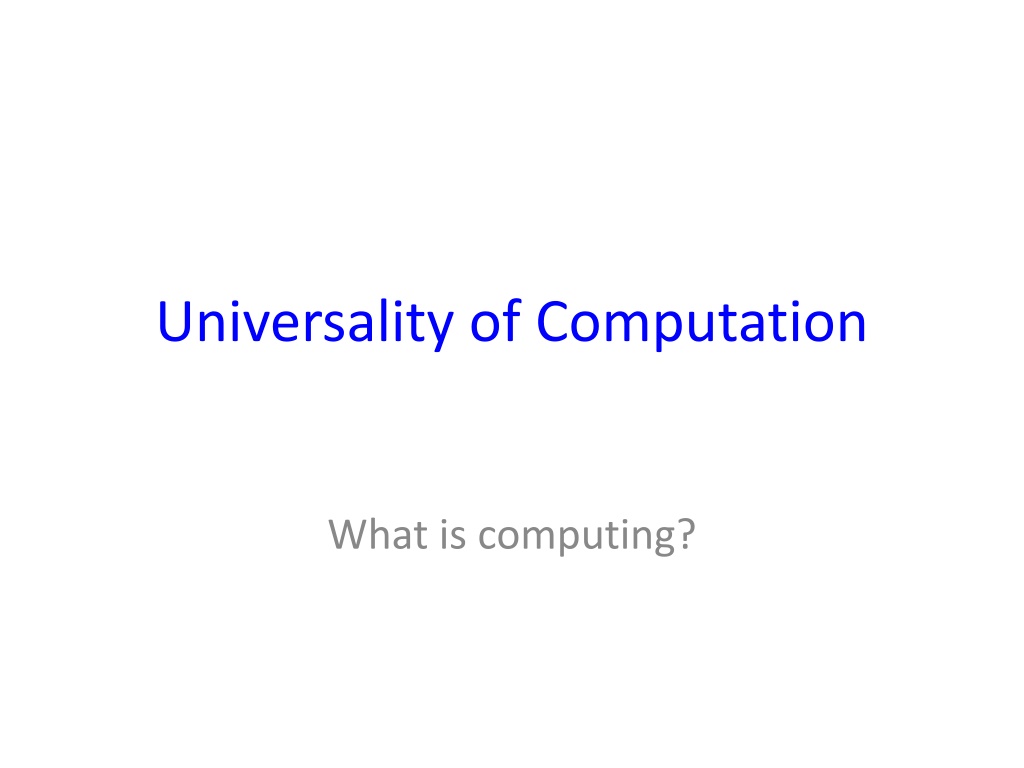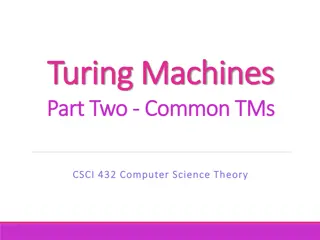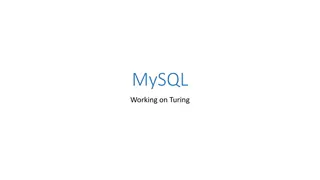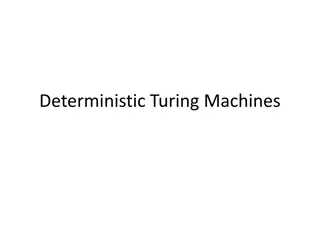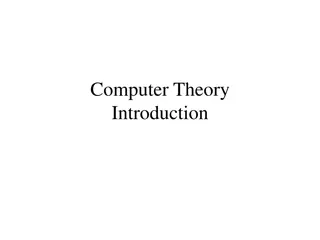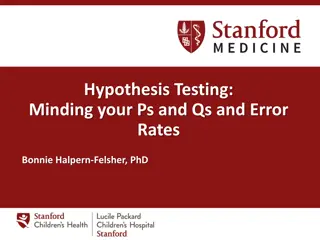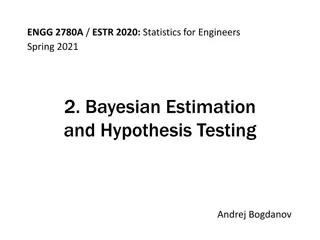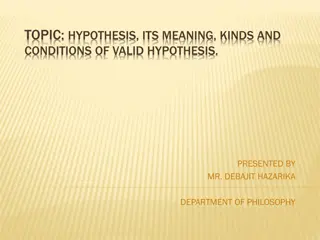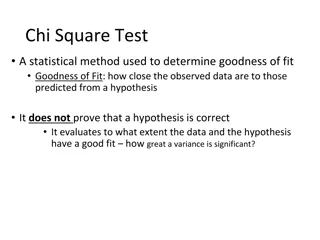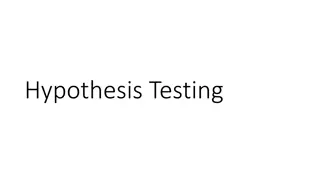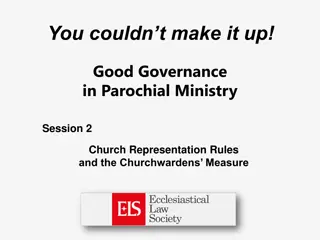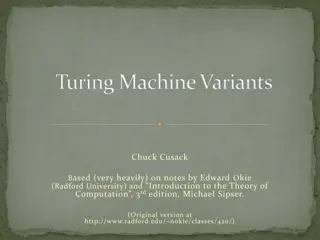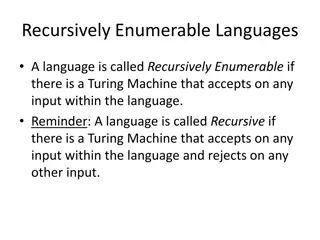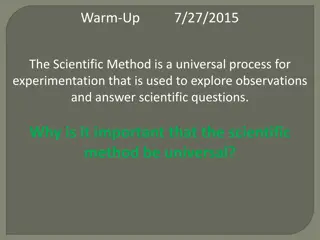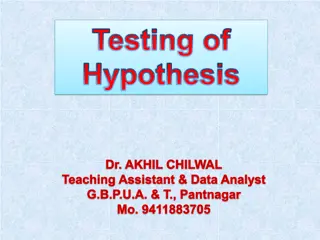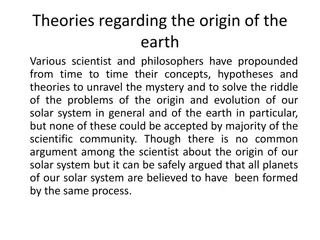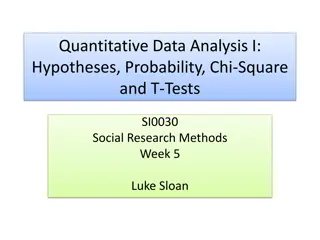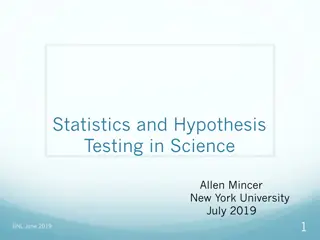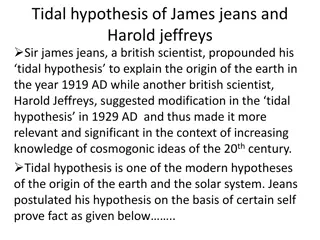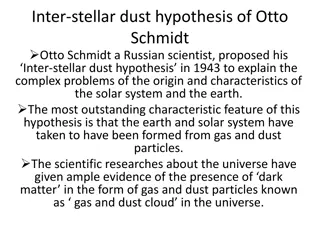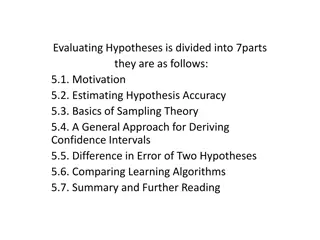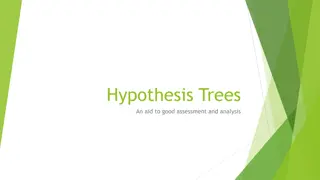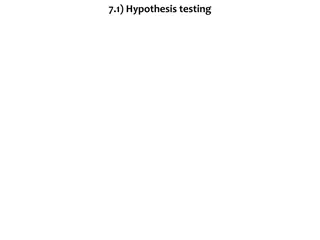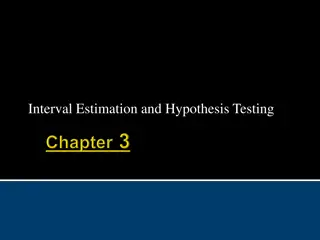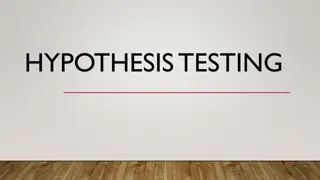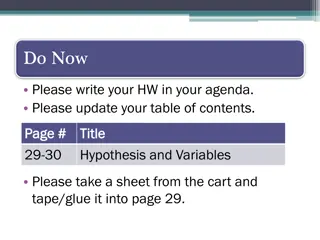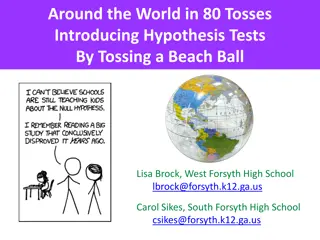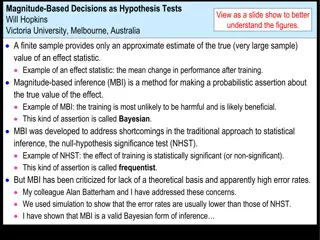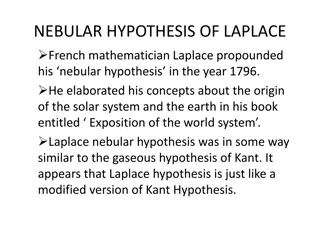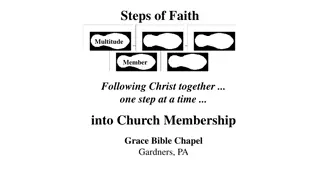Overview of Universality and Church-Turing Hypothesis
The universality of computation encompasses physical and mathematically defined computation, along with the concept of Turing machines and universal computers. The Church-Turing Hypothesis posits that everything computable can be computed by a Turing machine. The modern interpretation extends this to efficiently computable by a randomized Turing machine, although challenges exist in efficiently simulating quantum mechanical systems.
Download Presentation

Please find below an Image/Link to download the presentation.
The content on the website is provided AS IS for your information and personal use only. It may not be sold, licensed, or shared on other websites without obtaining consent from the author. Download presentation by click this link. If you encounter any issues during the download, it is possible that the publisher has removed the file from their server.
E N D
Presentation Transcript
Universality of Computation What is computing?
Mathematically defined computation f(x,0) = 1 f(x,y) = g(y,f(x,y-1)) g(z,0) = 0 g(z,w) = h(w,g(z,w-1)) h(r,0) = r h(r,s) = h(r,s-1)+1 def is_prime(n): for i in range(2,n): if n%i == 0: return False return True
Turing Machines a Symbol read b 0 1 state a b 0, R, b 1, L, b 1, L, g 0, L, a e z z 1, R, x 0, L, a Symbol written | Head Movement | New State
Turing Machine for adding 1 1 0 Start a 1, _, b 0, L, a (with head on least significant bit) b Halt 0, _, b 1, _, b
Universal Computers Theoretical version: there exists a single Universal Turing Machine that can simulate all other Turing machines The input will be a coding of another machine + an input to the other machine Hardware version: stored program computer Software version: interpreter def simulate(program, input): Accepts a string that holds a python function definition and an input string, and simulates the function when it is given the input string as its parameter, returning the value that the function returns ...
The Church-Turing Hypothesis Everything computable is computable by a Turing machine Physical interpretation Conceptual interpretation Definition of Computation Everything computable is computable by a Python program All good enough computers are equivalent
CTH: The Modern Version Everything efficiently computable is computable efficiently by a randomized Turing machine Efficiently : in polynomial time . Running time is . for some constant c. Randomized : allow to flip coins use randomization All good enough computers are equivalent -- even if you worry about efficiency c ( ) O n
CTH and Quantum Physics Only known challenge to the modern version of CTH We do not know how to simulate quantum mechanical systems efficiently The quantum probability amplitudes are different from normal probabilities Maybe quantum computers can efficiently do more than normal randomized computers Efficient quantum algorithm for factoring is known Can quantum computers be built? Existing physics? New physical laws? Technology? Quantum CTH version : .. By a quantum Turing Machine
CTH and Chaos The physical world is analog When we simulate it on a digital device we use a given precision Input and output are given in finite precision How many bits of precision do we need? How much can error in the input affect the output? Normally: a little Chaotic systems: a lot When we simulate a digital device on an analog device we can encode many bits in one analog signal Limits to precision of analog systems: atoms, quantum effects Hard to think of a physical signal of even 64 bits of precision
CTH and the Brain Is the brain just a computer? Metaphysics: The mind-body problem Monism: everything is matter -- including humans Dualism: there is more ( soul , mind , consciousness ) Technical differences Parallel, complicated, analog, Still equivalent to a Turing Machine
AI Why can t we program computers to do what humans easily do? Recognize faces social situations Understand human language (well) Processing power? Software? Scruffy vs. Neat debate Big data
The Brain vs. Google Cloud There are 109-- 1010neurons in the brain Each neuron receives input from 103-- 104 synapses Each neuron can fire about 100-- 102times/sec Total computing power of brain is 1012-- 1016 ops/sec Google cloud has 107--109 cores Each core can compute 108--1010 ops/sec Total computing power of Google cloud is 1015-- 1019ops/sec
When Computers are Smarter than us? Can do intelligent things that we care about better than humans. Scientific/Medical Discoveries, Winning/Avoiding Wars, Running Companies/Commerce, Creating Movies/Books/Games, Educating, Designing Computers/Programs/Systems/Robots Will never happen? Quite useful, but no big deal? Singularity? Augmented-men vs. Huddled masses? Robot Uprising? 15
The limits of computation and mathematics
Universal Computers Theoretical version: there exists a single Universal Turing Machine that can simulate all other Turing machines The input will be a coding of another machine + an input to the other machine Hardware version: stored program computer Software version: interpreter def simulate(program, input): Accepts a string that holds a python function definition and an input string, and simulates the function when it is given the input string as its parameter, returning the value that the function returns
The Halting problem def halt(program, input): Accepts a string that holds a python function definition and an input string, and simulates the function when it is given the input string as its parameter, returning True if the program ever returns and returning False if the program never terminates and never returns(e.g. goes into an infinite loop)
Diagonalization def auto_halt(program): returns true if the given program halts when given itself as an input return halt(program, program) def paradox(program): if autoHalt(program): while(True): pass else return True;
The halting problem can not be solved! Assume: There is a program for computing halt There are also programs for self_halt and paradox Question: Will paradox halt when given its own code as its parameter? Yes? auto_halt should return True when given paradox s code as input paradox will go into an infinite loop paradox will not halt contradiction No? auto_halt should return False when given paradox s code as input paradox will return immediately contradiction Contradiction to the assumption! Theorem: the halt method can not be written.
Diophantine Equations cannot be Solved def compile_to_equations(program, input): Accepts a string that holds a python function definition and an input string, and returns a set of Diophantine equations that have a solution if and only if the program halts on the given input. + = 3 2 3 0 x y z xwz Fact: It is possible to write compile_to_equations Proof idea: a number can encode the complete history of the computation. Theorem: There does not exist any program that can solve diophantine equations + = 2 2 3 3 2 0 x z w z z ... = 7 6 2 0 z w zw
Formal Proofs Theorem: Proof: QED Axiom Follows from previous lines
Axiomatic System A syntactic way to show semantic mathematical truths Axioms + Deduction rules (logic) Must be effective trivial to determine if a proof is correct Must be sound Anything you prove must be true Can it be complete? Prove all true mathematical statements
Zermelo-Fraenkel Set Theory The basis of all mathematics (one possibility) ( [ S z z T S = ) ] S T z z S z T S T ( ) z T ... Effective Sound, we think Anything you prove in Math courses really uses ZFC The details are not important, yet we will prove: Theorem: ZFC is not complete
Proof Checking def is_zfc_proof(theorem, proof): Accepts a string that holds a supposed theorem and a string that holds a supposed zfc proof of the theorem, and returns True if this is indeed a valid zfc proof of the theorem.
Computation theory is part of mathematics def compile_to_halt_thm(program, input): Accepts a string that holds a python function definition and an input string, and returns a string of a supposed theorem that states that the program halts on the given input. def compile_to_nohalt_thm(program, input): Accepts a string that holds a python function definition and an input string, and returns a string of a supposed theorem that states that the program does not halt on the given input.
Godels incompleteness theorem def halt(prog, inp): thm_y = compile_to_halt_thm(prog, inp) thm_n = compile_to_nohalt_thm(prog, inp) for p in all_possible_strings: if is_zfc_proof(thm_y, p): return True if is_zfc_proof(thm_n, p): return False if all true mathematical statements have ZFC proofs then halt can be solved! Theorem: ZFC is not complete (and neither is anything else)
